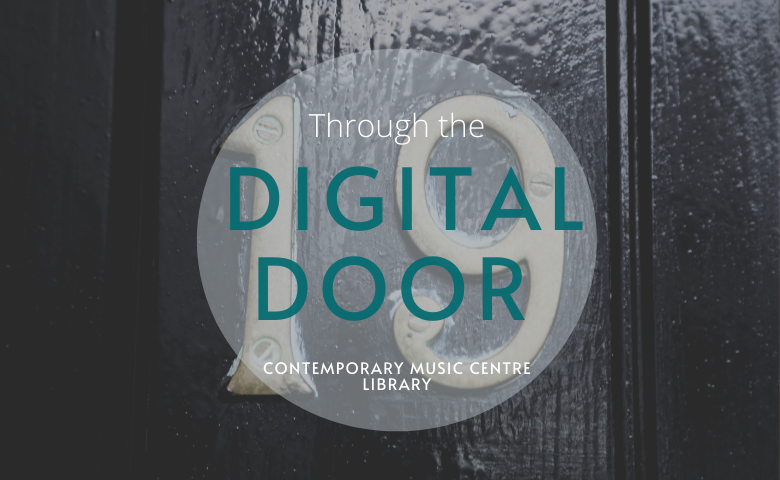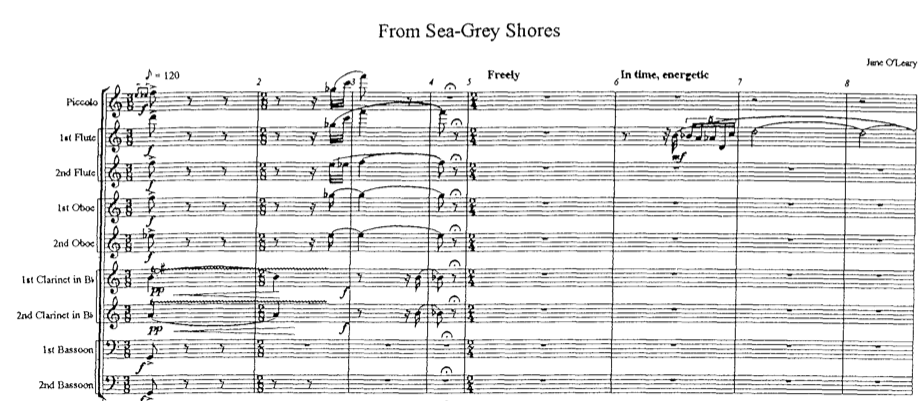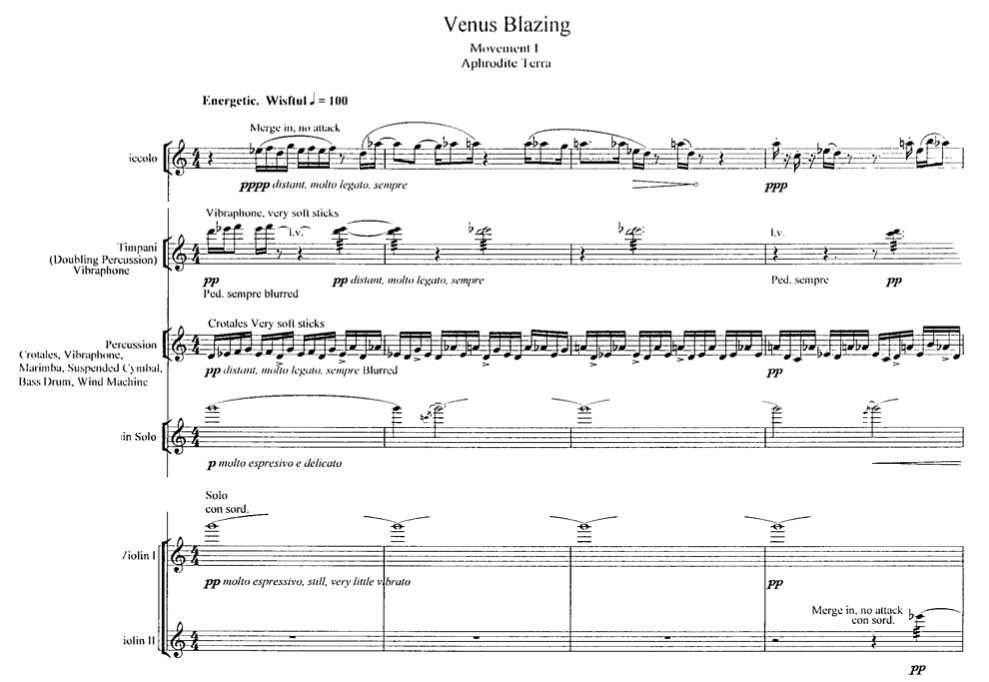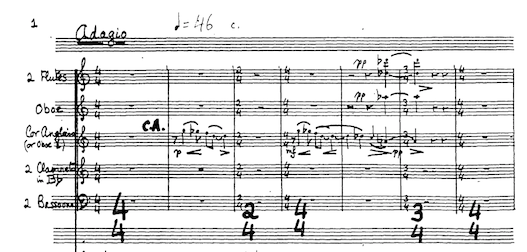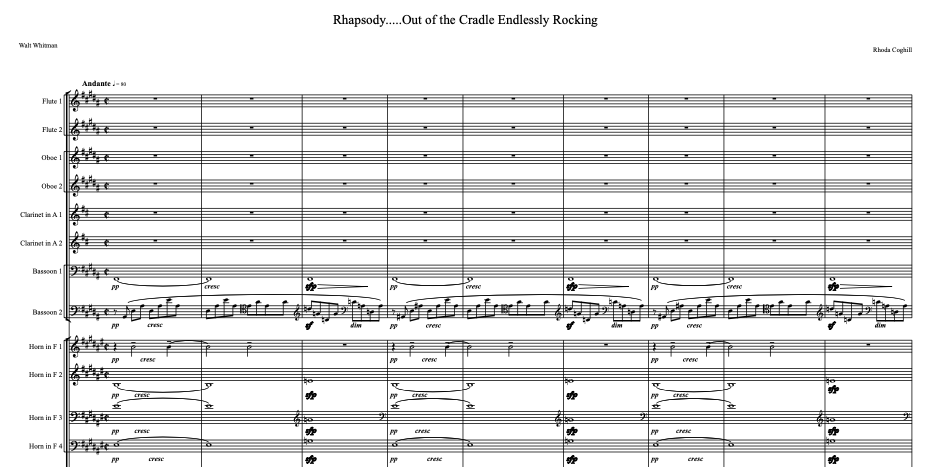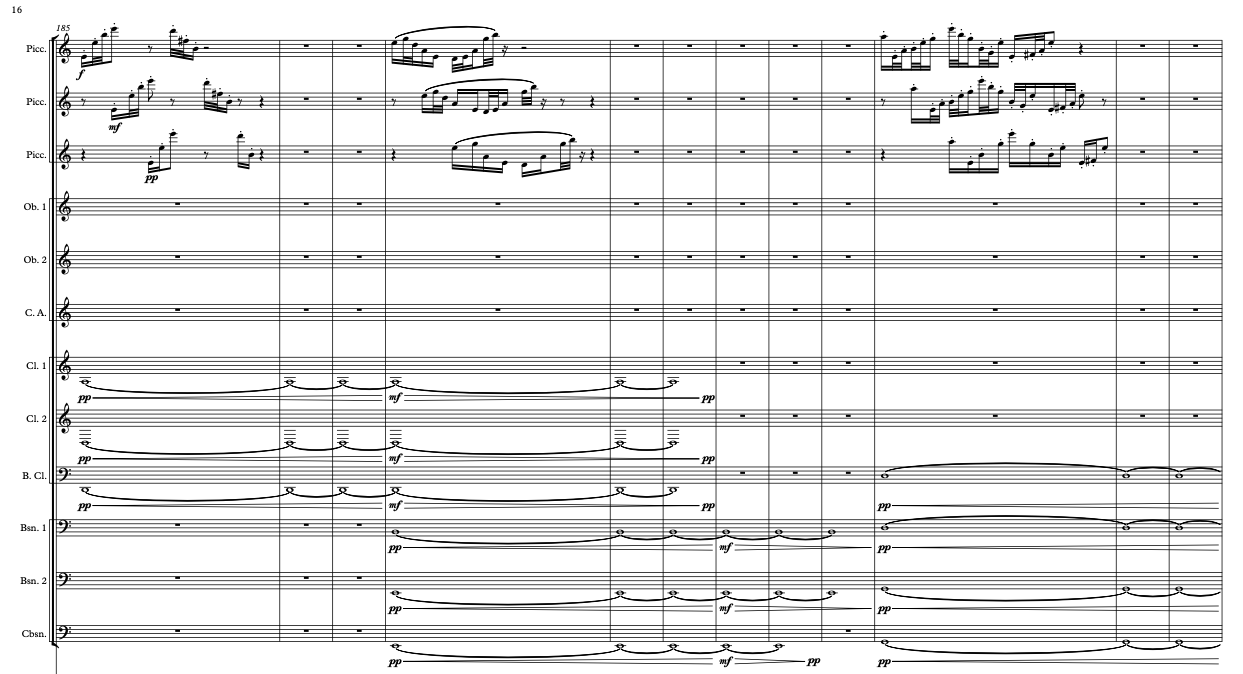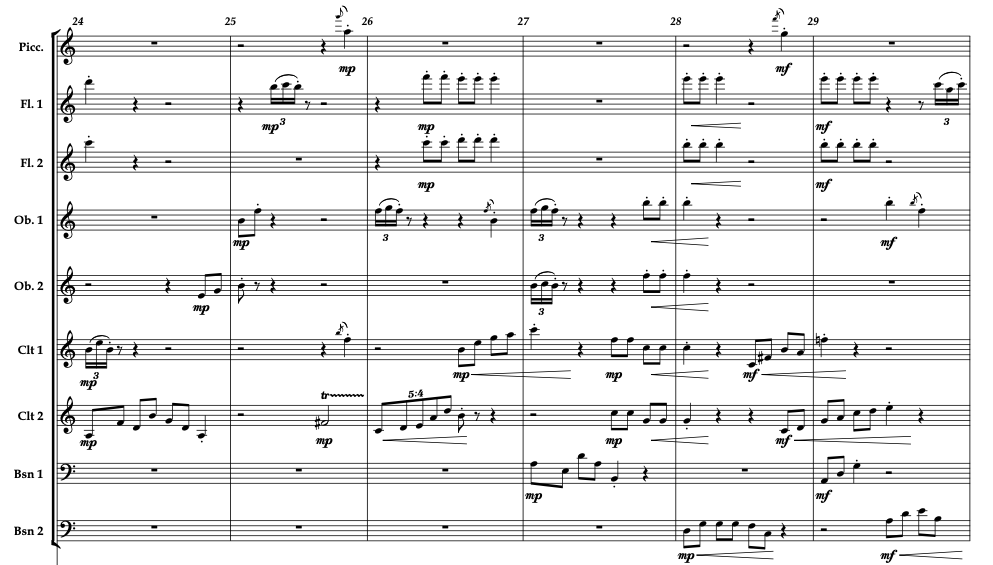Through the Digital Door: Works for Symphony Orchestra (part 2)
This edition of Through the Digital Door is the second in a two-part feature highlighting works for symphony orchestra in the CMC catalogue. Spanning a period of almost 100 years, this selection represents a fraction of the wide selection of symphonic works lodged in CMC's catalogue.
Jane O'Leary: From Sea-Grey Shores (1999) 10'
Written as an opening piece on the orchestral programme, the work creates a mood of expectation, opening the ears of the listeners both for the music which follows and hopefully their own imaginative explorations. Music is essentially movement and in this work, the flow of textures reflects the subtle and shimmering movements of the sea, particularly off the west coast of Ireland. The spaciousness of that landscape is an important influence.
This work was premiered by the RTÉ National Symphony Orchestra and conductor Gerhard Markson in a programme that also included Ravel's Pavane pour une infante defunte and Mendelssohn's Violin Concerto Op. 64. The title is derived from Oliver St John Gogarty's description of Renvyle House in Connemara as 'a sea-grey house'.
Bill Whelan: The Seville Suite (1992) 38'
This work, the composer's first large-scale orchestral composition, was commissioned to commemorate Ireland's participation in the European Cultural Exposition (Expo '92) and premiered in the Maestranza Concert Hall, Seville. The soloists included Davy Spillane (uilleann pipes), Martin O'Connor (accordion), Mel Mercier (bodhrán) and Mairéad Nesbitt (fiddle).
This work is published by Boosey & Hawkes.
Deirdre Gribbin: Venus Blazing (2001) 15'
Composed for solo violin and symphony orchestra, this work consists of three movements, Aphrodite Terra; Bonon and flying bird. It was commissioned by Northern Sinfonia and premiered in 2002 by Northern Sinfonia and conductor Susanna Maalkki.
I am deeply fascinated by planetary forces, beyond earth and often beyond our understanding. Whilst living in New York in 2000, I made several visits to the Rose Space Center viewing the Magellen photographs and data from the surface of Venus. As well as the scientific importance of the planet, Venus has been the source of much literature and of great importance in the ancient world. There is a magic mysticism associated with Venus also.
Brian Boydell: In Memoriam Mahatma Gandhi (1948) 12'
Boydell began work on this work the day after Gandhi's assassination in January 1948, and the work was premiered by the Radio Éireann Symphony Orchestra in July of that year.
Formally the work comprises a Prelude and Funeral March. Apart from one brief outburst suggesting the anger and shame felt by people throughout the world at the brutal murder, the *Prelude* is a lament, subdued and expressive in character. Its main themes derive from the grief-laden opening notes of the cor anglais echoed by a passage for solo cello. The same muted quality dominates the beginning of the *Funeral March*, but this gradually builds up to a climax. A short coda repeats the opening themes, and dies away in a mood of unearthly peace.
Explore Trinity College Library's online exhibition, marking the centenary of the composer's birth.
Stephen McNeff: ConcertO-Duo (2008) 26'
This work was commissioned by Borletti Buitoni Trust and BBC Radio 3 for duo solo percussion and symphony orchestra. It was premiered by O Duo, BBC Symphony Orchestra and conductor David Robertson in October 2010. This work is published by Edition Peters.
Rhoda Coghill: Out of the Cradle, Endlessly Rocking (1923) 23'
Though this work was composed in 1923, when the composer was 20, it did not receive its first full performance until 1990. This work set a Walt Whitman text of the same title as a large-scale work for tenor, chorus and orchestra. The work was revived during the 2016 RTÉ/NCH Composing the Island project, performed by the RTÉ National Symphony Orchestra, RTÉ Philharmonic Choir, tenor Dean Power and conductor Mark Hindley.
Sam Perkin: The Orchestra in the Digital Age (For Orchestra and Sine Tones) (2018-2019) 9'
This work was composed as part of the fourth edition of Composer Lab, a CMC and RTÉ NSO initiative that gives composers an opportunity to deepen their experience in writing for symphonic forces under the mentorship of composer David Fennessy.
In 2019, four composers (Peter Fahey, Kerry Hagan, Daniel McDermott and Sam Perkin) took part, workshopping their pieces before a final broadcast of final works from RTÉ Radio Centre in May 2019.
Sam Perkin's work The Orchestra in the Digital Age is scored for symphony orchestra and electronics.
This piece blurs the line between what we expect an orchestra to sound like today and what is possible. Sine Tones are the purest form of electronically produced sound and I blended these Sine Tones with the Orchestra in such a way that it is impossible to tell the difference between the two, blending them together to the highest degree possible. The result is an act of synchronisation which makes the orchestra glow in a new light, like hearing it anew. The piece speaks of the ever-advancing complex relationship between our technology and ourselves.
Eibhlís Farrell: An Rince Sidhe (The Fairy Dance) (2018) 5'
This work was commissioned by the BBC for Ulster Orchestra, as part of a concert celebrating BBC Northern Ireland's 1936 Ulster Airs scheme. This 1936 scheme aimed to preserve folk and traditional music of Northern Ireland and to bring it to a wide audience through the broadcast of orchestral arrangements. Eibhlís Farrell's 2018 work was premiered in Ulster Hall in June 2018. This concert included works from the 1936 concert as well as premieres of five new works, including An Rince Sidhe.
Based on the Donegal slip-jig, The Fairy Jig, this work also pays tribute to Turlough Ó Carolan’s Banríon na Síog/The Queen of the Fairies which was performed at the 1792 Belfast Assembly of Harpers and included in the first Bunting Collection of 1796.
Siobhán Cleary: Cokaygne (2009) 8'
Commissioned by RTÉ, this work was premiered by the RTÉ NSO and conductor Vladimir Altschuler in November 2009.
The tradition of a mythical land of plenty situated to the west is a common theme in European classical literature. The Greek Golden age had its myth of the Fortunate Isles. A 13th-century French fabliau, *Cocagne* (meaning abundance) is a satire on the legendary isle of Avalon where roasted song-birds fly around entreating people to eat them and young women in silk draw cups of wine. Ireland had its own Land of Plenty tradition, unrelated to the European depictions of Cokaygne. The Irish tradition includes the satirical *Aislinge Meic Conglinne* which includes a vision of a land made entirely of food. These two traditions came together in the *Land of Cokaygne*, my own introduction to this fantastical place and the stimulus to this tone-poem.
David Fennessy: Prologue (Silver are the tears of the moon) (2013) 10'
This work was commissioned by BBC Radio 3 for BBC Scottish Symphony Orchestra, and premiered in May 2013 at the Tectonics Music Festival in Glasgow in May 2013.
Prologue (Silver are the tears of the moon) constitutes the first part of a trilogy of pieces I am composing based on the diaries of the German film director Werner Herzog which he kept during the troubled production of his 1982 movie "Fitzcarraldo" and later published as the book "Conquest of the Useless". I wanted this piece to have all the grandeur and over-the-top emotions of a romantic opera overture and as I began to compose, that wish became more and more literally realised with snatches of Rigoletto writhing in the undergrowth accompanied high above by the “melancholy peeping” of tree-frogs.
This work is published by Universal Edition.

